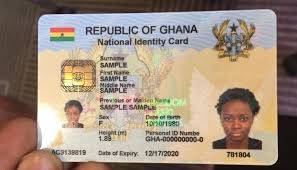The Ghanaian Parliament has rejected the Electoral Commission's proposal to make the Ghana Card the sole identification document for voter registration. The decision was made during a parliamentary debate on the proposed changes to the country's electoral laws.
The Electoral Commission had argued that using the Ghana Card as the only form of identification for voter registration would improve the accuracy and efficiency of the process. However, members of Parliament expressed concerns about the potential exclusion of voters who do not have Ghana Cards.
According to the Parliamentarians, relying solely on the Ghana Card would disenfranchise many Ghanaians, particularly those living in rural areas and low-income communities. They also expressed concerns about the timing of the proposed changes, noting that it could lead to confusion and chaos ahead of the next general elections.
Despite the rejection of the proposal, the Electoral Commission has reiterated its commitment to ensuring a credible and transparent electoral process in Ghana. The commission has stated that it will continue to work with stakeholders to find a solution that balances accuracy and inclusivity.
The debate over the use of the Ghana Card as the sole form of identification for voter registration highlights the importance of ensuring that electoral processes are accessible to all citizens. Ghana has a long history of conducting peaceful and democratic elections, and ensuring that every citizen has the opportunity to vote is crucial for the continued success of the country's democracy.
The rejection of the Electoral Commission's proposal by Parliament demonstrates the importance of open and inclusive dialogue between government institutions and citizens. By engaging in constructive debates and listening to the concerns of all stakeholders, Ghana can continue to build a strong and sustainable democracy.
In conclusion, while the use of the Ghana Card as the sole form of identification for voter registration may have some advantages, the potential exclusion of many Ghanaians underscores the importance of inclusivity in electoral processes. The decision by Parliament to reject the proposal demonstrates the value of open and inclusive dialogue in building a strong and sustainable democracy. The Electoral Commission's commitment to finding a solution that balances accuracy and inclusivity is a positive step toward ensuring a credible and transparent electoral process in Ghana.




No comments yet
Be the first to share your thoughts!